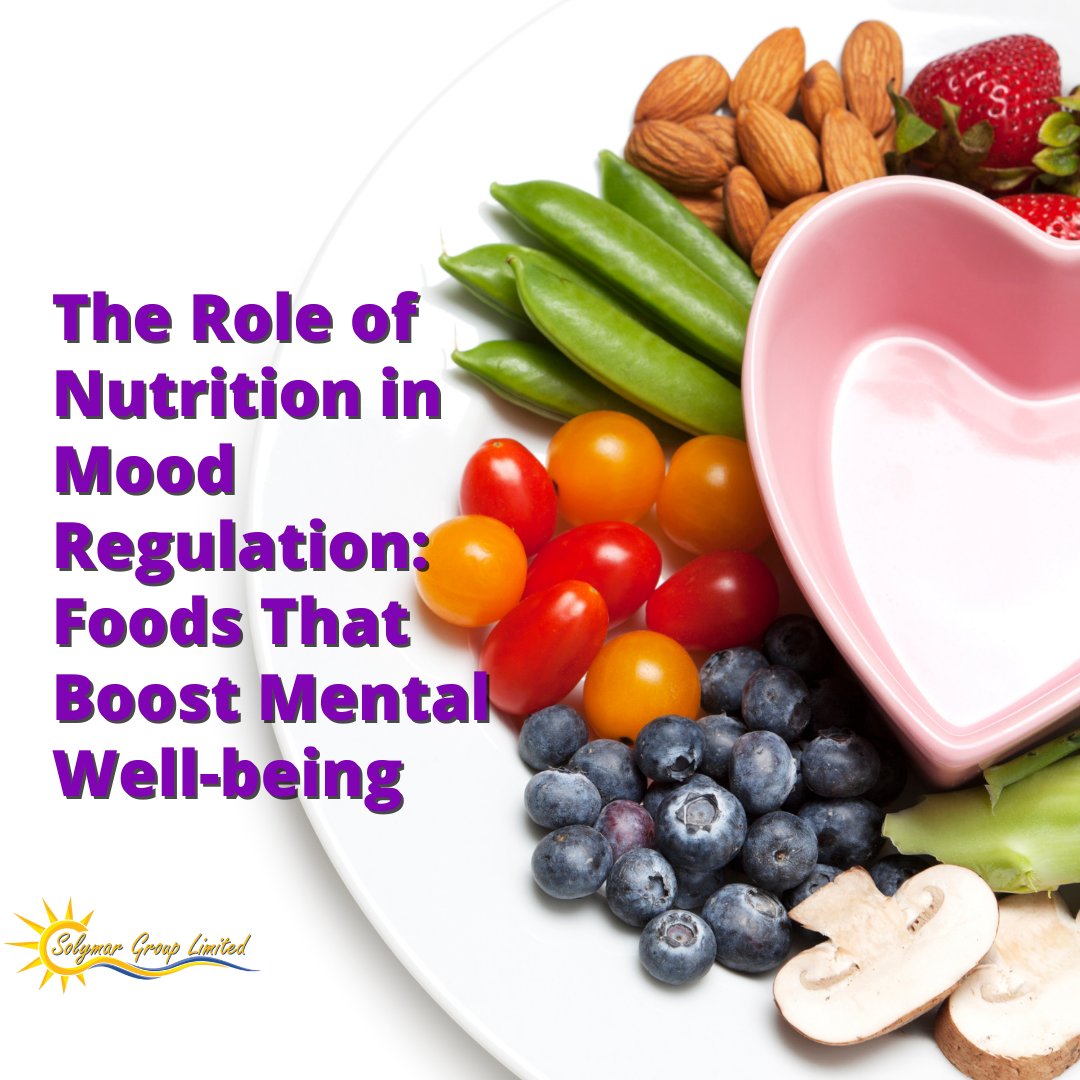 Nutrition has long been recognized as a key factor in maintaining physical health, but its impact on mental well-being is often underestimated. The foods we consume have a direct influence on our brain chemistry and can significantly affect our mood and emotions. By incorporating certain foods into our diet, we can naturally boost our mental well-being and promote a positive mindset. In this article, we will explore the role of nutrition in mood regulation and highlight some foods that have been scientifically proven to enhance mental well-being.
Nutrition has long been recognized as a key factor in maintaining physical health, but its impact on mental well-being is often underestimated. The foods we consume have a direct influence on our brain chemistry and can significantly affect our mood and emotions. By incorporating certain foods into our diet, we can naturally boost our mental well-being and promote a positive mindset. In this article, we will explore the role of nutrition in mood regulation and highlight some foods that have been scientifically proven to enhance mental well-being.
The Gut-Brain Connection
To understand the relationship between nutrition and mood regulation, it is crucial to recognize the significance of the gut-brain connection. The gut and the brain communicate bidirectionally through a complex network of nerves, hormones, and biochemicals. This connection, known as the "gut-brain axis," plays a vital role in regulating our emotions, behavior, and overall mental health.
Proper nutrition supports a healthy gut microbiome, which refers to the trillions of microorganisms residing in our digestive system. These microbes play a crucial role in producing neurotransmitters like serotonin, dopamine, and gamma-aminobutyric acid (GABA) that influence our mood and emotions. A well-balanced diet can promote the growth of beneficial gut bacteria, leading to improved mental well-being.
Foods That Boost Mental Well-being:
-
Fatty Fish: Fatty fish such as salmon, mackerel, and sardines are excellent sources of omega-3 fatty acids. These essential fats are known to reduce inflammation in the body and support brain health. Omega-3s have been linked to a lower risk of depression and can enhance overall mood and cognitive function.
-
Leafy Greens: Leafy green vegetables like spinach, kale, and Swiss chard are rich in important nutrients like folate, magnesium, and vitamins C and E. Folate, in particular, has been associated with a lower risk of depression. Magnesium helps regulate neurotransmitters and plays a vital role in managing stress and anxiety.
-
Whole Grains: Whole grains, such as oats, brown rice, and quinoa, are high in complex carbohydrates that provide a steady release of energy. They promote the production of serotonin, a neurotransmitter that contributes to feelings of happiness and well-being. Including whole grains in your diet can help stabilize mood and improve mental clarity.
-
Berries: Berries, including blueberries, strawberries, and raspberries, are rich in antioxidants and vitamin C. Antioxidants help protect brain cells from oxidative stress, which can contribute to mood disorders. Vitamin C is involved in the production of dopamine and serotonin, both of which play a key role in regulating mood.
-
Nuts and Seeds: Nuts and seeds, such as almonds, walnuts, chia seeds, and flaxseeds, are packed with nutrients that support brain health. They are excellent sources of omega-3 fatty acids, antioxidants, and magnesium. Regular consumption of nuts and seeds can improve mood, reduce inflammation, and enhance cognitive function.
-
Fermented Foods: Fermented foods like yogurt, kefir, sauerkraut, and kimchi contain beneficial probiotics that promote a healthy gut microbiome. Consuming these probiotic-rich foods can positively impact mental health by improving digestion, reducing inflammation, and enhancing the production of neurotransmitters.
Conclusion
The role of nutrition in mood regulation and mental well-being should not be overlooked. By incorporating foods that support brain health and nourish the gut, we can naturally boost our mood, reduce the risk of mood disorders, and promote a positive mindset. Including fatty fish, leafy greens, whole grains, berries, nuts and seeds, and fermented foods in our diet can have a significant impact on our mental well-being. Take charge of your mental health by making informed choices about the foods you consume, and experience the positive effects on your overall happiness and emotional well-being.
Remember, the path to mental well-being begins on your plate!
Hashtags: #nutrition #moodregulation #mentalwellbeing #foodforhappiness #positivemindset






